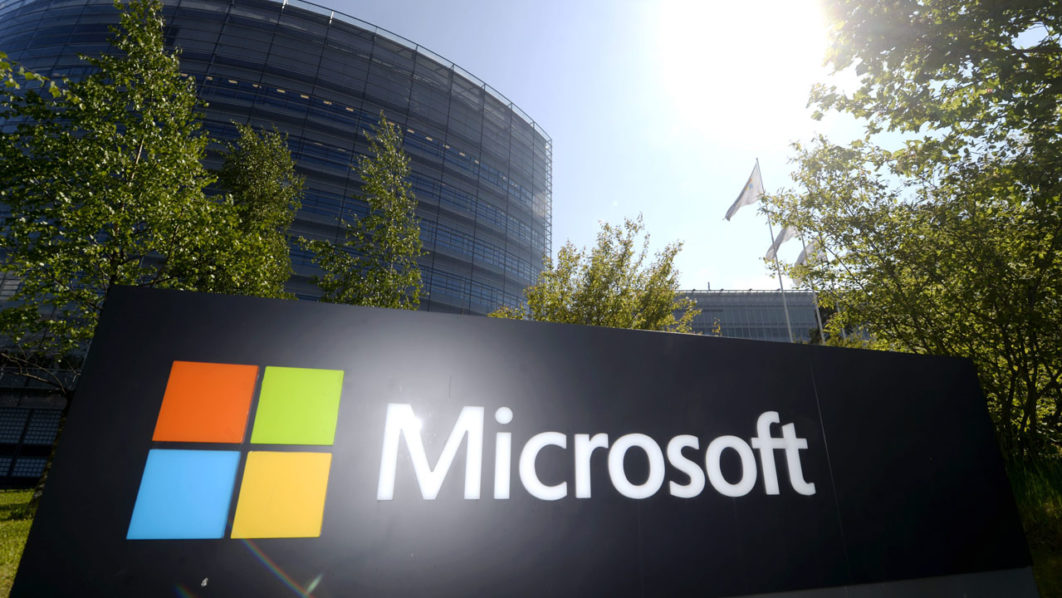
Also, the leading technology company is committed to supporting the digital transformation of Nigeria’s financial services providers with its tailored Cloud solutions in the country.
Speaking during a roundtable webinar on Wednesday, Marketing and Operations Director for Microsoft Middle East and Africa, Hoda Younan, unpacked Microsoft’s digital transformation roadmap to accelerate meaningful transformation for Nigeria’s financial services. She also disclosed that the American company had invested about $15 billion in data centres in 54 locations across the world.
“Microsoft is uniquely placed to empower Africa’s FSPs by bringing together existing and new industry capabilities to deliver a more seamless, customised cloud-based experience.
“With deep security and compliance built in to meet the needs of the FSI, the proposed digital transformation roadmap future-proofs FSPs as they continue to manage unprecedented risks and grow rapidly with innovative business models,” Younan stated.
She said with this targeted solution, Microsoft has already helped many FSPs to successfully embrace change and unlock new value creation on their digital transformation journey
According to her, “what we have seen in doing so is a common trend that defines success for FSPs.
“These organisations view transformation as a journey that supports their staff to create the value the organisation seeks. These businesses access this value by defining a clear vision and strategy, creating a collaborative company culture, and understanding their unique potential and capabilities before turning to technology to transform the way they work. Put simply, technology is the tool. People are the focus. And more value is the outcome.”
Already, the African Financial Industry Barometer (AFIB) revealed that nearly 72 per cent of banks have already launched digitalisation programmes as a priority for the year ahead.
However, Microsoft revealed that most of those surveyed felt that their digital maturity was still at the emerging stage, stressing that these FSPs need to accelerate transformation as a business priority.
Country Manager for Microsoft Nigeria, Ola Williams, noted that several factors were driving the urgency to digitise.
“First, we have seen changes in employee work patterns that have shaped a hybrid workforce, as well as the increasingly sophisticated customer expectations for a 24-hour-a-day service at their fingertips with the same level of security as a physical vault.”
“Remaining competitive has seen a growing call for more sustainable, cost-effective business systems. Additionally, the urgency to digitise can also be attributed to increased regulatory scrutiny, a global surge in cybercrimes, and the rise of non-traditional FSPs in the form of FinTechs,” she stated.
According to her, this urgency is not only underpinned by the need for FSPs to remain operational and productive, but it also addresses their goal to accelerate financial inclusion by extending services to unbanked markets through mobile tech solutions.
“Our focus on providing services that facilitate a trusted cloud with pervasive intelligence allows FSPs to reimagine how they deliver payments, manage risk, empower employees, and deliver engaging customer experiences,” Williams noted.
She stressed that this reimagining is powered by Microsoft’s smart cloud-based products, including Azure, Dynamics 365 intelligent business apps, the Microsoft 365 productivity cloud of industry-leading apps, the Microsoft Power Platform offering tech solutions around data and builds, the Microsoft Teams business collaboration hub, and GitHub Enterprise code-repository service for developers.
Revealing the benefits delivered through Cloud for Financial Services capabilities, the American firm said its roadmap offers an end-to-end integration of intelligent cloud-based products. Integration benefits include the ability to empower employees, deliver differentiated customer experiences, combat financial crime, boost security and compliance, and ease interoperability while unifying data.
In helping FSPs empower employees, Microsoft’s cloud enables organisation-wide communication and collaboration through secure digital channels, providing staff with access to key information from any location. By breaking down silos, the plan streamlines all business processes.
The result is enhanced employee engagement and satisfaction and strengthened customer connections with these banking representatives.
Microsoft said exceptional customer experiences are further achieved through the use of the cloud’s predictive analytics for a 360-degree customer view. This allows FSPs to anticipate and proactively address customer needs in a more personalised, relevant way.
“Today’s increasingly complex regulatory environment, against the backdrop of market volatility brought on by the pandemic, means FSPs must prioritise compliance, being able to assess company-wide exposure and risk across more often, with greater agility. Leveraging Cloud for Financial Services’ enterprise-grade analytics, FSPs will realise this level of agility. It enables better regulatory-aligned management of sensitive data, records, and communication channels, while also offering the ability to simulate business scenarios to manage risks more accurately.
“A huge focus is to help FSPs combat financial crime. They must be able to innovate at the rate of financial crime to reduce operational costs while protecting the organisation and its customers against losses and criminal activity. As such, users can employ the cloud’s enhanced data analytics to identify outliers faster to respond to the newest criminal topologies and conduct ongoing risk scoring. Microsoft’s solution also helps FSPs enhance fraud-detection systems to add contextual information that will reduce false-positive alerts,” Microsoft stated.



